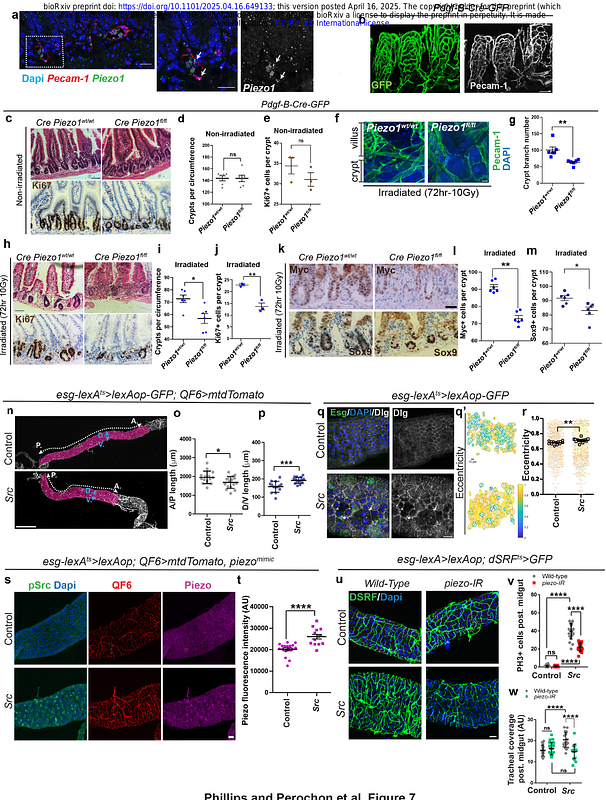Intestinal Tissue Mechanics Regulate Angiogenesis and Stem Cell Proliferation via Vascular Piezo

Intestinal Tissue Mechanics Regulate Angiogenesis and Stem Cell Proliferation via Vascular Piezo
Cordero, J. B.; Phillips, J. A.; Perochon, J.; Johnson, C. T.; Walker, M.; Nixon, C.; Hughes, M.; Barros Carvalho, A.; Yu, Y.; Mitchell, L.; Blyth, K.; Vassalli, M.
AbstractThe vasculature is a prominent component of developmental and adult tissue microenvironments. How, tissue specific characteristics and environmental states influence vascular biology and function, remains largely understudied. Previously, we discovered crosstalk between the adult intestinal epithelium and the vasculature-like tracheal system of the fruit fly Drosophila melanogaster, which is driven by reactive oxygen species (ROS) during pathogen induced-intestinal regeneration. However, chemical stress signals alone are insufficient to explain the rich diversity of vasculature/tissue interactions in living systems and justify the widely observed adaptation of the vascular network in physiology and disease. Here, we uncover reciprocal, mechanochemical interorgan communication between the adult intestine and its vascular niche, which shapes vascular and epithelial tissue adaptations and drives stem cell proliferation during intestinal regeneration and tumour growth. Mechanistically, apoptotic epithelial cells within the regenerating intestine induce local and global mechanical changes in the gut, which results in activation and upregulation of the mechanosensitive ion channel Piezo in a subset of gut-associated trachea. Piezo drives a specific molecular program within the trachea through activation of the mechanosensitive transcription factor Yorkie/YAP, leading to tracheal remodelling and intestinal stem cell proliferation. Furthermore, we identify a non-redundant role of vascular Piezo1 driving remodelling of the intestinal crypt vasculature and inducing crypt growth, WNT signalling activity, and stem cell proliferation in the regenerating mouse small intestine. Our cross-species in vivo study reveals previously unrecognised mechanosensory regulation of intestinal regeneration and tumourigenesis through the vascular-stem cell niche and highlights the importance of studying tissue and context specific vascular cell biology to understand intestinal plasticity and the complexity of tissue/vasculature interactions within a living organ.